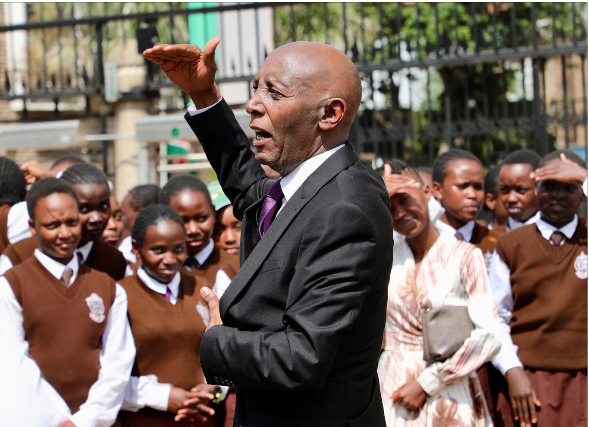In a powerful display of civic engagement, over 30,000 students from more than 100 schools across Kenya visited Parliament last week, transforming the historic chambers into a living classroom. The initiative, led by National Assembly Speaker Moses Wetang’ula, is part of a broader strategy to reconnect Parliament with the youth following recent Gen Z-led protests that questioned the institution’s relevance.
Kenyatta International Convention Centre (KICC) was a hive of activity, as yellow school buses many carrying beyond capacity delivered eager learners to the heart of Kenya’s legislative process. For many of these primary and secondary school students, it was their first face-to-face interaction with lawmakers.
“This is not just symbolic; it is essential,” Wetang’ula said, emphasizing that Parliament is the people’s house and should reflect national aspirations. “By opening our doors to students, we are growing the next generation of responsible, informed leaders.”
Throughout the week, students took part in guided tours, interactive sessions, and live sittings of the House. They asked questions on governance, policy-making, and lawmaking, and engaged directly with Members of Parliament. On a single day Tuesday Parliament hosted a record 70 schools.
Teachers described the experience as transformative. “Parliament is no longer just a building they see on TV. Now, they understand it and believe they belong here,” said Mary Achieng’, a teacher from western Kenya.
Stephen Apopo, director in the Speaker’s office, noted how students arrived curious and left inspired. “They ask tough, smart questions. That’s how you build ownership of democracy.”
To accommodate the influx, designated rest zones, snack areas, and photo spots were set up, while parliamentary staff guided learners throughout the precincts.
Wetang’ula has announced plans to institutionalise the initiative into an annual civic education drive featuring structured debates, mentorship sessions, and tailored learning materials.
As Parliament works to rebuild public trust, these visits are helping to humanise governance, demystify lawmaking, and plant the seeds of integrity and national pride in young minds.
Indeed, as the youthful faces lit up across the parliamentary grounds, one thing became clear—civic education is no longer a formality, but a movement.

